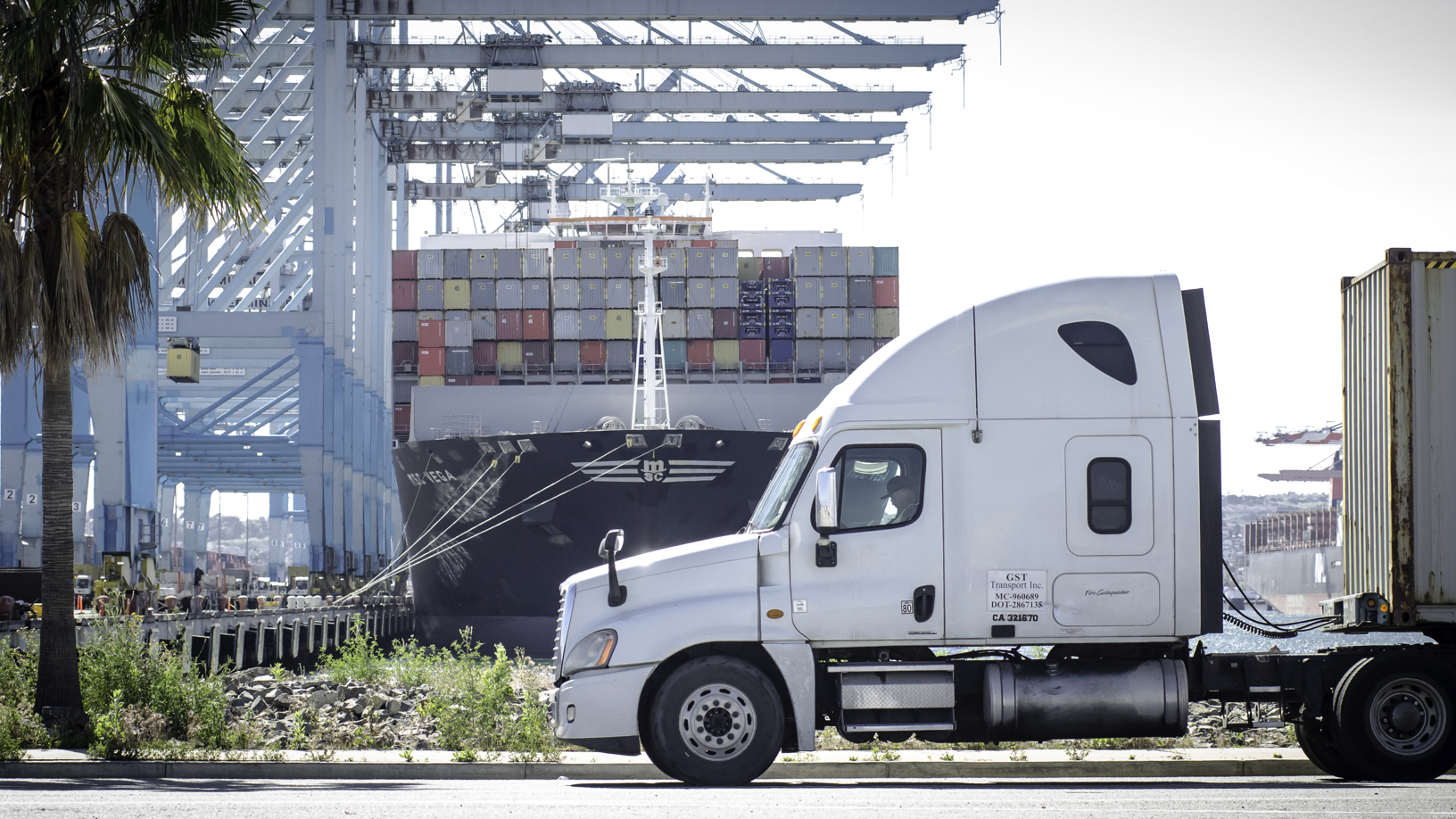WASHINGTON — Drayage truckers and shippers are pushing hard against a request by container ship operators to delay a recent rule regulating how containers can be billed, warning the Federal Maritime Commission that such a move would lead to supply chain havoc.
The Ocean Carrier Equipment Management Association (OCEMA), which represents 10 of the largest international ocean carriers, argued in its petition to the FMC that because the agency made a correction to its final rule on demurrage and detention after the rule was issued on Feb. 26 – and just 19 days before it was scheduled to take effect on May 28 – its effective date should be pushed back another 90 days.
FMC’s rule correction was intended to clarify whether and when motor carriers, which typically are not parties to contracts between ocean carriers and shippers, can be billed for containers that are late getting picked up or returned to intermodal yards or storage facilities at seaports.
“The time between issuance of the correction and the effective date does not allow sufficient time for VOCCs [vessel operating common carriers] to review their practices in light of the revised guidance and make adjustments to those practices in advance of the existing effective date of the final rule,” OCEMA stated in its May 28 petition.
“VOCCs must now unwind arrangements they made premised on the FMC’s indication that motor carriers with whom they had contractual relationships could be invoiced for detention and demurrage … . [T]he FMC appears to now be taking the position [after issuing its clarification] that motor carriers may not be invoiced for detention or demurrage charges relating to inland transport on through moves.”
Customers push back
Industry opposition to OCEMA’s request was nearly unanimous, with many pointing out that regulators were never ambiguous in their intent that trucking companies were not to be charged demurrage and detention fees just because they were involved in hauling containers.
“The rule specifically identifies the ultimate consignee or the actual party who has contracted with the billing party for ocean transportation or storage of cargo as the only entities that may receive the bill,” commented Matt Schrap, CEO of the Harbor Trucking Association, which represents West Coast port drayage trucking companies. “The rule goes on further to explain that the billing party cannot send the invoice to ‘any other person.’”
Instead of trying to delay the rule, OCEMA “should be diligently working with their supply chain partners to build clarity and consensus around processes and procedures as opposed to pushing for the status quo that in the past had worked only to serve their bottom line,” Schrap said.
The Shippers Coalition, whose members include Home Depot, Coca-Cola, and Procter & Gamble, pointed out that because the rule is already in effect, OCEMA is effectively asking that it be halted.
“That would result in a potentially chaotic cessation of the rule’s provisions, leaving unclear what is in effect or permitted, including for commercial transactions already under way that were entered into understanding that the rule would be in effect,” according to the group.
Agriculture Transportation Coalition Executive Director Peter Friedmann agreed, asserting in comments that “suspending current demurrage and detention billing practices in place for all ocean exports and imports at all ports in the United States would wreak havoc on the entire US supply chain.”
Also, because the rule includes provisions on billing beyond demurrage and detention specifically, it “provides significant benefits for the entire supply chain … enhancing supply chain fluidity,” Friedmann said.
Brokers propose compromise
The National Customs Brokers & Forwarders Association of America (NCBFAA) was the only commenter that did not reject OCEMA’s rule delay request – and that’s because the broker group took issue with a different provision in the final rule.
NCBFAA stated that it was caught off guard after learning that the “contents of invoice” provision in the rule, which stipulated specific shipping information to be included in demurrage and detention bills, would be delayed indefinitely.
“This delay impacted any programming the Association members could do to ensure compliance of their … demurrage and detention invoices,” the group stated. “While the reasoning in the petition to extend the effective date … differs from the NCBFAA, both associations agree that additional time for compliance would be beneficial for the industry.”
NCBFAA proposed that rather than extending the effective date of the entire rule, the FMC should allow for an interim period of “informed compliance,” a practice used by U.S. Customs and Border Protection when issuing new regulations.
During the interim period, the group stated, those required to comply with the rule would not be fined and enforcement action would not be taken against them.
“Importantly, an ‘informed compliance’ period would benefit the industry by allowing regulated entities to roll out new practices and policies and adjust, as needed, without fear of penalty.”


